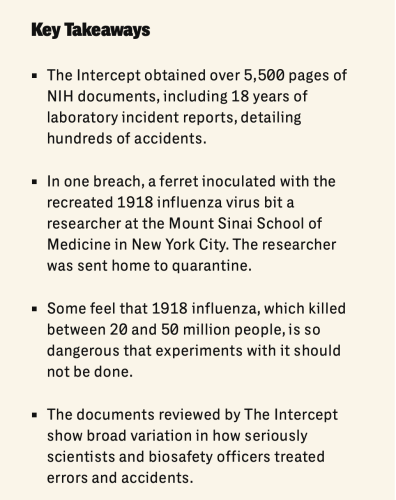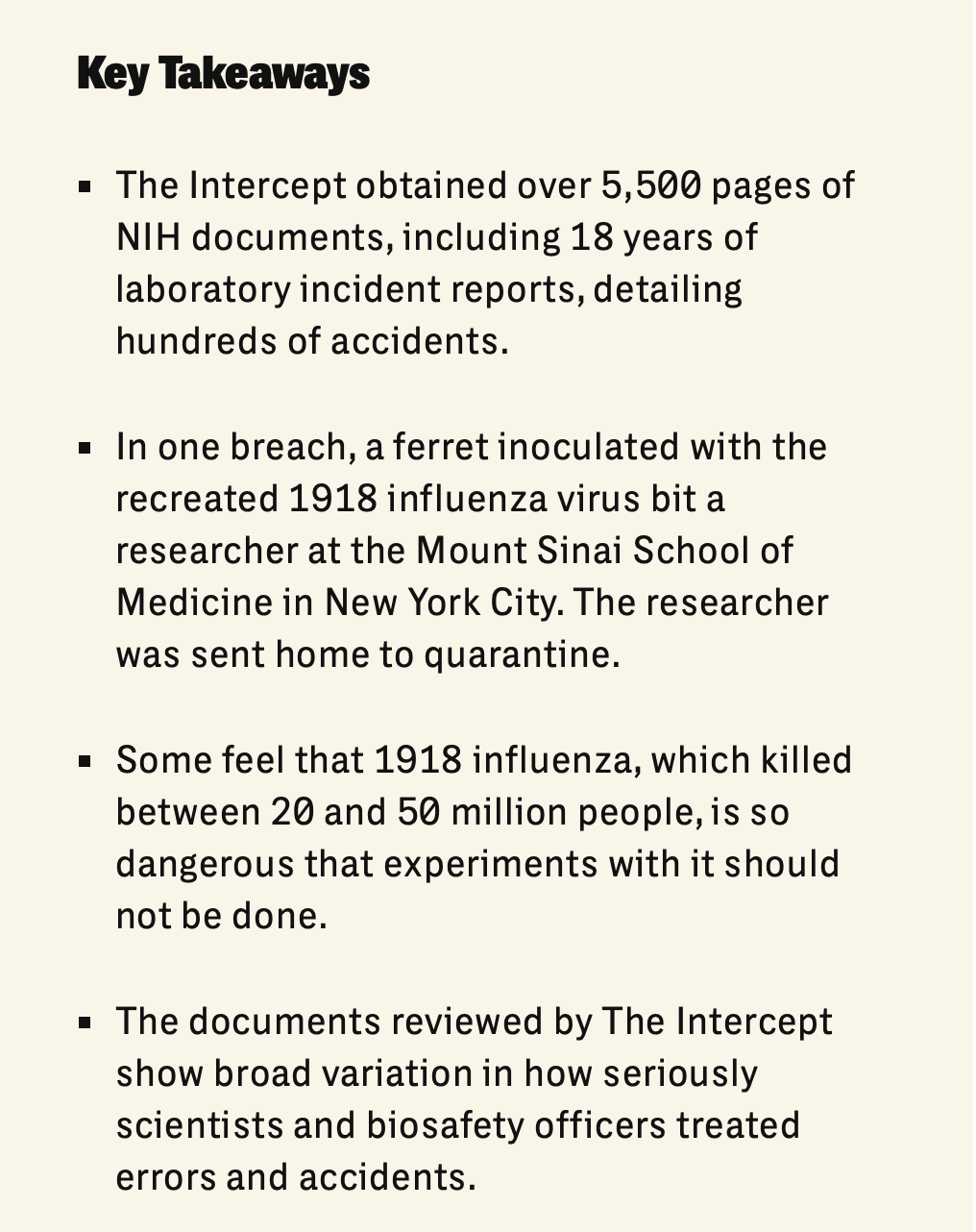In America’s biolabs, hundreds of accidents have gone undisclosed to the public. This one was a doozy.

It was the Friday afternoon before Labor Day in 2011, and people were rushing out of the city for a long weekend. Three days earlier, the ferret had been inoculated with a recombinant strain of 1918 influenza, which killed between 20 and 50 million people when it swept through the world at the end of World War I. To prevent it from sparking another pandemic, 1918 influenza is studied under biosafety level 3 conditions, the second-tightest of biosafety controls available. The researcher at Mount Sinai School of Medicine (now Icahn School of Medicine at Mount Sinai) was wearing protective equipment, including two pairs of gloves. But the ferret bit hard enough to pierce through both pairs, breaking the skin of his left thumb.
The flu is typically transmitted through respiratory droplets, and an animal bite is unlikely to infect a scientist. But with a virus as devastating as 1918 flu, scientists are not supposed to take any chances. The researcher squeezed blood out of the wound, washed it with an ethanol solution, showered, and left the lab. A doctor gave him a flu shot and prescribed him Tamiflu. Then, after checking that he lived alone, a Mount Sinai administrator sent him home to quarantine for a week, unsupervised, in the most densely populated city in the United States. As documents obtained by The Intercept show, staff told him to take his temperature two times a day and to wear an N95 respirator if he got sick and needed to leave for medical care.
Read on here.
"AT THE MOMENT..the ferret bit him, the researcher was..in..Manhattan, in a lab one block from Central Park..Three days earlier, the ferret had been inoculated with a recombinant strain of 1918 influenza, which killed..50 million..at..end of WWI."https://t.co/4xT99Tm9gd
— Richard H. Ebright (@R_H_Ebright) November 1, 2022
